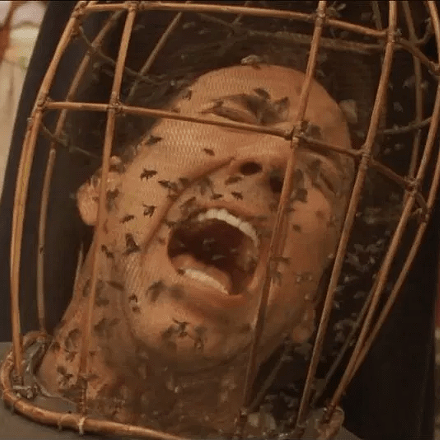City Weekly: When a possible movie was being discussed, was there something in particular you heard, or wanted to hear, to reassure you that they would do this the right way?
James Dashner: I didn’t really have a lot of power contractually, so it was in [20th Century Fox studio]’s hands. I guess I’ve been really lucky. The producer told me they wanted me as part of the family. But once I visited the set, that’s when my confidence really skyrocketed.CW: How involved were you in the development of the script and the production?
JD: I’m a movie fan before anything else. I’m a strong believer that you don’t want to try to directly translate a book to a film. I feel that bores people; they’re just going through a checklist [of things from the book]. I think Fox got that vibe from me from the very beginning. They were really open about what changes they felt were necessary, but asked “how much is this gonna tick off the readers.” But every character in the book is in the movie; every major scene is in the movie.
CW: What were you most determined to see remain the way you envisioned it from the book?
JD: My biggest fear was that they were going to turn this into a big romance, because every YA [movie] that has come out has this romance plot line, or it turns into a love triangle. There’s not even a kiss [in the movie]. I was really worried that I would keep seeing the phrase everywhere “yet another YA movie.” But [director] Wes Ball really tried to make it a throwback to ‘80s adventure movies like The Goonies.
CW: And yet that kind of “another YA adaptation” reaction is already out there.
JD: I’ve accepted the fact that a lot of people—especially adults and the media—are absolutely going to have a preconceived notion about it. I’ve seen that in a lot of the fall preview-type stuff. I totally understand it, because there have been a lot of really bad adaptations of young adult novels in recent years. But I feel like the media doesn’t talk that way, for example, about superhero movies. The first review I saw for [The Maze Runner] was some guy in Australia who just ripped it to shreds, but his bias was just so evident. He even tweeted “please don’t make any more young-adult movies.”
CW: In terms of the casting of the characters, did anything surprise you in seeing a physical representation of someone who’d previously only existed in your mind?
JD: I was surprised at how quickly my mind adapted to each character in the cast. I definitely had pictures of them all in my head that I’d seen for years and years. But with each cast member that came on board—Will Poulter certainly is nothing like what I imagined Gally was like, but I was so thrilled when he was cast.
CW: How invested have you gotten in the idea of whether or not the movie is a financial success?
JD: I think about it every hour of every day. Like I said, I’m a huge film buff and a box office junkie. And I love tracking the numbers. So it’s in my head, big-time. The thing we have going for us is we had such a low budget, I think that it would have to astronomically bomb for it not to be considered a success. So I’m very confident they’re going to make [the second book in the series,] Scorch Trials. For all intents and purposes, they’ve committed to it.
CW: Do you think you’ll react to reviews of the movie differently than you react to reviews of your books?
JD: I know this for a fact, because it’s been years since I let a book review hurt me. They don’t faze me any more; every book I’ve loved, there’s someone out there who doesn’t like it. [But] with the movie, I feel like I’m its dad or something. And I’m rooting for [the filmmakers], so I think I will take it very personally when I’m reading reviews.
CW: The first time you saw the completed film, what was your reaction when the credits rolled?
JD: It’s kind of embarrassing: When it was over, I was overcome with emotion. I was bawling, I was laughing. It was so surreal, and it all hit me in one moment. I had high expectations, and [the filmmakers] exceeded them.
Rated PG-13 · 113 minutes · 2014
Director: Wes Ball
Producer: Ellen Goldsmith-Vein, Wyck Godfrey, Marty Bowen, Lee Stollman, Joe Hartwick Jr., Edward Gamarra and Lindsay Williams
Cast: Dylan O'Brien, Kaya Scodelario, Aml Ameen, Thomas Brodie-Sangster, Ki Hong Lee, Will Poulter, Patricia Clarkson, Blake Cooper, Dexter Darden, Jacob Latimore, Chris Sheffield, Joe Adler, Randall Cunningham, Alexander Flores and Don McManus
More by Scott Renshaw
-
Film Reviews: New Releases for July 11
Superman, Abraham's Boys, Sovereign, Kill the Jockey
- Jul 10, 2025
-
Ranking all the Superman movies
Ahead of the new feature, a look at nearly 50 years of the Man of Steel on screen.
- Jul 9, 2025
-
Art exhibitions for July 2025
Scout Invie's First Rodeo, Sandy Brunvand's Ecotone, Mitsu Salmon's Erosion and Becoming, new exhibitions at Utah Museum of Contemporary Art and more.
- Jul 9, 2025
- More »
Latest in Film Reviews
Readers also liked…
-
Sundance 2025 wrap-up plus February special screenings
Uncertainty about the future location shifts focus away from the movies
- Feb 5, 2025








